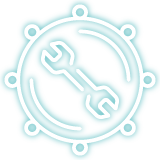PUBLICATION DETAILS
Regulation of arginase II by interferon regulatory factor 3 and the involvement of polyamines in the antiviral response.
Grandvaux, N., Gaboriau, F., Harris, J., tenOever, B. R., Lin, R. and Hiscott, J.
FEBS J 16/06/2005
PMID: 15955070
Abstract
The innate antiviral response requires the induction of genes and proteins with activities that limit virus replication. Among these, the well-characterized interferon beta (IFNB) gene is regulated through the cooperation of AP-1, NF-kappaB and interferon regulatory factor 3 (IRF-3) transcription factors. Using a constitutively active form of IRF-3, IRF-3 5D, we showed previously that IRF-3 also regulates an IFN-independent antiviral response through the direct induction of IFN-stimulated genes. In this study, we report that the arginase II gene (ArgII) as well as ArgII protein concentrations and enzymatic activity are induced in IRF-3 5D-expressing and Sendai virus-infected Jurkat cells in an IFN-independent manner. ArgII is a critical enzyme in the polyamine-biosynthetic pathway. Of the natural polyamines, spermine possesses antiviral activity and mediates apoptosis at physiological concentrations. Measurement of intracellular polyamine content revealed that expression of IRF-3 5D induces polyamine production, but that Sendai virus and vesicular stomatitis virus infections do not. These results show for the first time that the ArgII gene is an early IRF-3-regulated gene, which participates in the IFN-independent antiviral response through polyamine production and induction of apoptosis.
